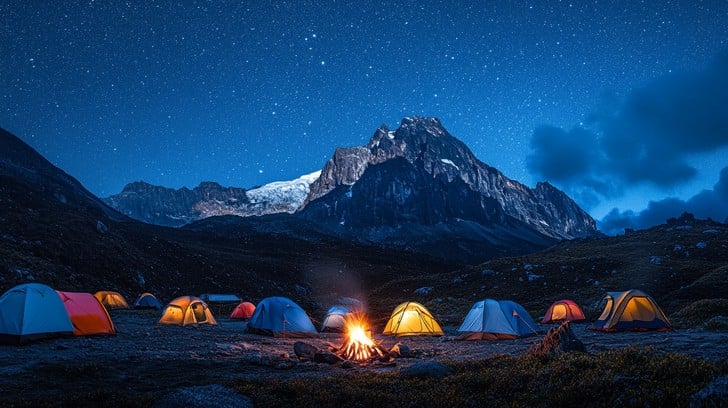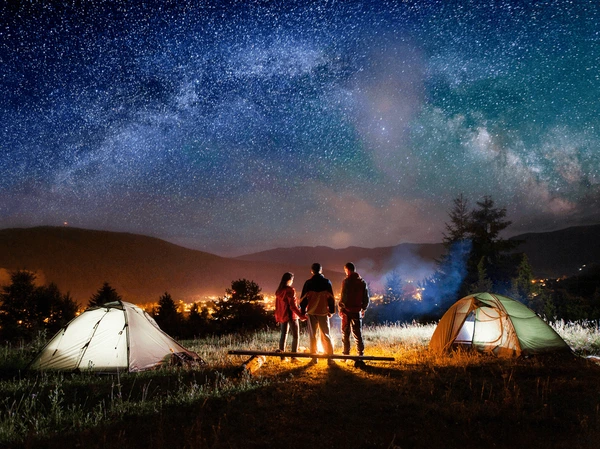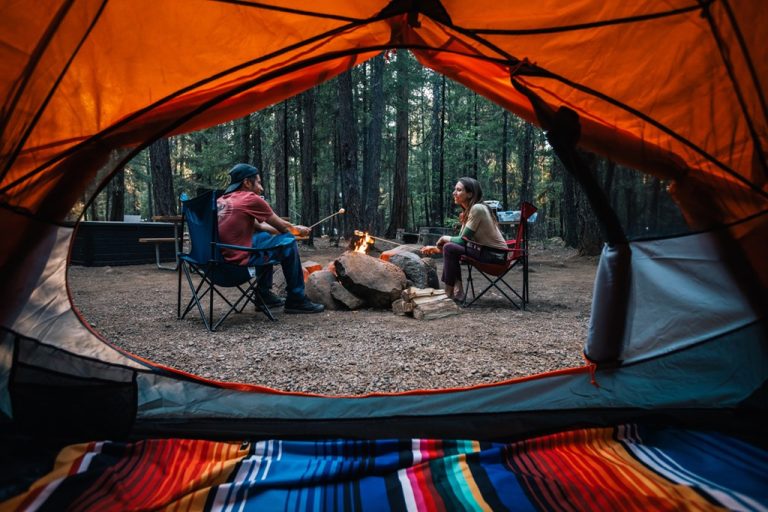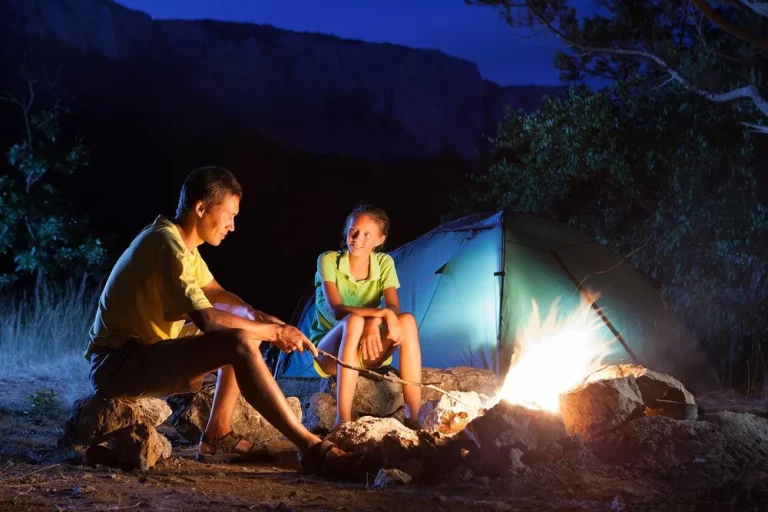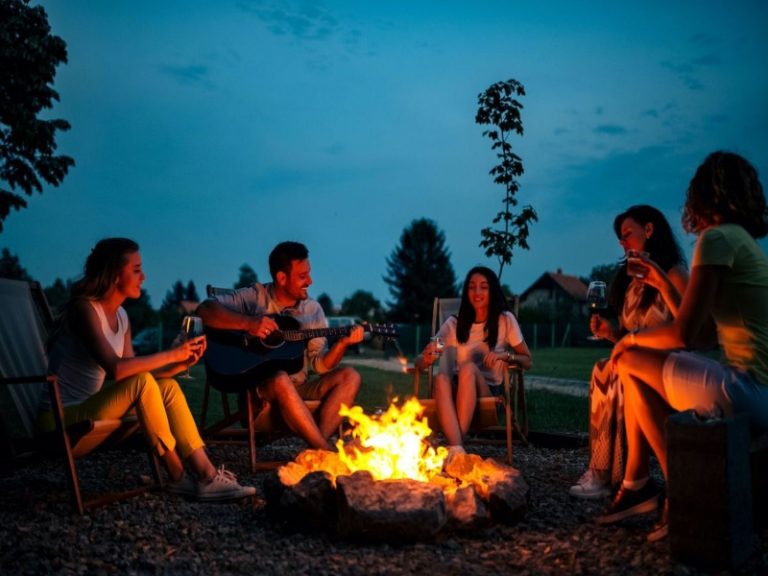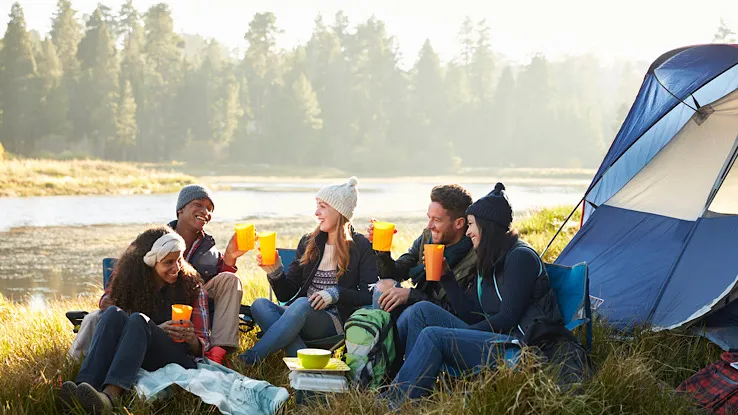Prepared for Anything: The Ultimate Camping Survival Guide
Nothing compares waking up to the sound of rustling leaves, fresh morning air, and the scent of pine all around you. Camping offers us freedom, adventure, and a respite from the digital mess of regular life. But, while the wilderness is beautiful and peaceful, it can also be unpredictable. Weather changes, accidents happen, and environment does not offer second chances. That’s why being prepared isn’t simply a good idea; it’s a survival requirement.
This complete book will provide you with the know-how, gear suggestions, and mindset methods to make your next camping trip a safe, confident, and wonderful experience.
1. Setting the Foundation: Planning Ahead
Every successful camping trip begins long before you step onto the trail. Preparation is your first line of defense against the unexpected.
Start by researching your location. What’s the weather forecast? Are you camping in bear country? Will you face rocky terrain, rivers, or steep climbs? Knowledge eliminates surprises. Always share your itinerary with a friend or family member, including when you plan to return. That way, if something goes wrong, help can reach you faster.
Finally, familiarize yourself with local regulations—whether it’s fire restrictions, fishing permits, or designated campsites. A little planning ensures you spend more time enjoying nature and less time scrambling in an emergency.
2. Packing Smart: Must-Have Survival Gear
When it comes to survival gear, think essentials—not extras. The golden rule? If it doesn’t serve multiple purposes, reconsider packing it.
Here’s a quick survivalist’s list to guide you:
- Shelter: Tent, tarp, or bivy sack.
- Fire starter: Matches, lighter, and ferro rod (always have backups).
- Navigation tools: Compass and a physical map (never rely solely on GPS).
- Knife or multitool: From preparing food to fixing gear, this is indispensable.
- First aid kit: Stock it, check it, and know how to use it.
- Water purification: Tablets, filters, or a compact UV sterilizer.
- Illumination: Headlamp or flashlight with spare batteries.
- Insulation: Extra layers and an emergency blanket.
- Nutrition: High-energy snacks like trail mix or jerky.
- Signaling device: Whistle, mirror, or even a bright bandana.
Pack light, but pack smart. You don’t need to carry your entire house—just enough to keep you alive and comfortable.
3. Mastering Shelter and Fire
The ability to create shelter and fire can transform a dangerous situation into a manageable one.
A shelter protects you from the elements and keeps your body temperature stable. Even if you bring a tent, know how to improvise with a tarp or natural materials like branches and leaves.
As for fire, it’s more than warmth—it’s a morale booster, a way to cook food, and a natural predator deterrent. Practice different fire-starting methods at home: matches, ferro rods, and—if you’re feeling ambitious—even a bow drill. Always clear a safe area for your fire and extinguish it completely before leaving camp.
4. Water and Food: Staying Nourished
A human can survive three weeks without food, but only three days without water. That’s why hydration is non-negotiable.
Learn to find and purify water. Streams, lakes, and even collected rainwater can be lifesavers, but never drink untreated water—it can contain bacteria and parasites. Boiling is the most reliable method, but filters, purification tablets, or UV purifiers are excellent lightweight options.
For food, pack calorie-dense, non-perishable items. Energy bars, nuts, jerky, and freeze-dried meals are compact and reliable. If you’re more adventurous, brush up on basic foraging—just make sure you can distinguish edible plants from poisonous ones. In survival, guessing wrong isn’t an option.
5. Navigation and Orientation Skills
Few situations are more frightening than realizing you’re lost. That’s why navigation is a must-have skill.
Learn how to use a compass and map together. Even if you’re hiking marked trails, don’t rely on them entirely—signs can be missing, and GPS batteries die. Nature itself can also be a guide: the sun rises in the east and sets in the west, while at night, the North Star can help you orient yourself.
Remember the rule of “STOP” if you get lost: Stop, Think, Observe, and Plan. Staying calm prevents small mistakes from turning into big problems.
6. First Aid and Emergency Readiness
Accidents can happen anywhere—even on the safest campsite. A twisted ankle, a burn from the campfire, or an insect bite can derail your adventure without proper first aid knowledge.
Your first aid kit should be well-stocked with bandages, antiseptic wipes, pain relievers, and tweezers. More importantly, you should know how to use every item inside. Take time to learn basic first aid procedures, from treating wounds to recognizing dehydration and hypothermia.
In case of an emergency, signaling is key. A whistle, mirror flashes, or even three distinct fire signals can alert rescuers. Remember: being found quickly is as important as staying safe.
7. Mental Strength: The Survival Mindset
Survival isn’t just about gear and skills—it’s about mindset. Panic clouds judgment, while calm thinking leads to solutions.
If things go wrong, remind yourself: I am prepared, I am capable, and I will find a way through this. Confidence fuels clear thinking, and adaptability makes you resourceful. Whether it’s bad weather, a broken tent pole, or an unexpected challenge, a resilient mindset is the most valuable tool in your survival kit.
Conclusion
Camping is one of life’s greatest adventures—an escape into the raw, untamed beauty of the outdoors. But adventure should never come at the expense of safety. With the right preparation, smart packing, and essential survival skills, you can be ready for anything the wild throws your way.
So, before your next trip, take a moment to review your gear, practice your skills, and strengthen your mindset. Remember: the wilderness rewards the prepared. Out there, survival isn’t just about making it through—it’s about thriving with confidence.
Now, grab your pack, lace up your boots, and head out knowing you’re equipped for whatever adventure comes your way.

